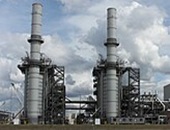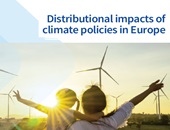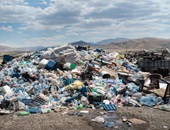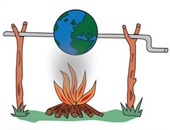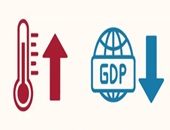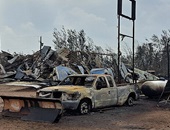What is the Cost of Biodiversity?
Biologists have long known that biodiversity is the key to nature’s resilience. In a biodiverse world, if the environment changes and some organisms can no longer thrive, others can take their place and fulfil functions that are essential to the species’ survival, and ultimately, human survival. Even the lowliest animals play significant roles, such as insects that pollinate—and a third of the food we eat depends crucially on insect pollinators. In addition to its intrinsic value, biodiversity underpins ecosystem services, providing the backbone of the global economy. Biodiversity loss, or the reduction in the genetic diversity of life forms, can […]
Energy transitions
As the low-carbon energy transition takes hold, transition risk becomes a hot topic. Various uncertainties, mismatches, and potential obstacles emerge, threatening to delay the changeover. For example, in 2021, the U.K. had to restart coal-fired power plants due to low wind power. Two major transitions in electricity generation are underway. The cost of generating electricity with natural gas has dropped—and the costs of solar panels and energy storage have also dropped. Both are leading to new vistas in power generation. However, “over-investment in CCNG may affect the transition to renewables,” said Gautam Gowisankaram, professor of economics at Columbia University and […]
Distributional consequences
Climate change marches on. To prepare for worse storms, droughts, and wildfires, the infrastructure must be improved. Governments have different ways to handle the costs of adapting to climate change. How will these additional costs be borne? “Transition to a carbon-neutral economy is at the top of the policy agenda around the globe,” said Moritz Kuhn, professor of economics at the University of Mannheim. Private households account for about two-thirds of carbon emissions. “Governments can introduce policies to speed up the adoption of green technologies,” he said, but the heterogeneity of consumption and carbon emissions could present problems. These will […]
Tackling Two Problems
Climate change and loss of biodiversity are often treated separately – in science, policy, and even risk management. But as the scientists and policymakers began sharing thoughts on these global crises, “we saw we have a bunch of things in common, such as response options and interventions,” said Professor Pete Smith, Professor of Soils and Global Change, University of Aberdeen. “We need to consider climate change and biodiversity from the very outset of planning solutions.” On November 7, 2024, he was interviewed by Jo Paisley, President, GARP Risk Institute.The Global Association of Risk Professionals (GARP) provides a series of podcasts […]
Dirty Deals
“The global plastic waste trade is an environmental disaster hiding in plain sight, fuelling organised crime, working conditions that amount to human rights violations and devastation to human health and the environment.” This is according to a report released on November 5, 2024, by the Environmental Investigation Agency (EIA) in Britain. ♠️ Click here to access “Dirty Deals Part 2″ from the EIA website.
Transition & Stability
The increasing frequency of extreme weather events in Canada has caused the annual payouts for catastrophic insurance claims to skyrocket, according to a recent Statistics Canada report. This is but one small piece of a global picture emerging, where extreme weather events are causing homeowner insurance to increase at a rate higher than inflation. In the worst case, climate change will cause insurance companies to go bankrupt and homeowners will have nowhere to turn. “Transitions happen shock-wise and are systemic,” said Dirk Schoenmaker, Professor at the Rotterdam School of Management. “What can we do to reduce transition risk?” He was speaking at a webinar […]
Global vs. Local Temperature
How often have you heard someone scoff at the changing global temperature? “A two-degree increase? Heck, it changes by twenty degrees some days—and I don’t complain,” they say with a laugh. “Is local temperature an incomplete representation of climate change?” asked Adrien Bilal, Assistant Professor of Economics, Stanford University. He posed the question at a webinar on October 3, 2024, which was part of a series of talks, the Virtual Seminar on Climate Economics, sponsored by the Federal Reserve Bank of San Francisco. The global average temperature has been increasing over the time period 1950 to 2020 (data from National Oceanic […]
How Much Will Global Warming Cool Global Growth?
More workers than ever before are being exposed to heat stress worldwide, according to a 2024 report. Heat stress has a knock-on effect for productivity and thus the gross domestic product (GDP). How much does a permanent rise in temperature decrease the GDP? Economists have tried to estimate the size of the climate change effect, in variously affected countries, with different models and different assumptions. “There’s a wide divergence in projections of how the GDP will change depending on climate change,” said Valery Ramey, Senior Fellow at Hoover Institution and Research Associate at National Bureau of Economic Research (NBER). She was […]
Investing? Climate Matters
How will climate change affect investment decisions, going forward? Are investment professionals well informed on climate risk and transition risk? “Around the world, nations are committing to net-zero emissions targets of greenhouse gases,” said Richard MacGillivray, Senior Director at CFA Institute. “What are the implications of these commitments for the value and performance of companies in the real economy?” The 2024 Global Risks Report tabled by the World Economic Forum (WEF) polled risk managers on the biggest global threat to sustainability. Over the next two years, respondents said the top risk is misinformation and disinformation. However, over the next ten […]
State of Wildfires
The potential for burning grows every month under climate change, as drought conditions increase in frequency and intensity. The dangers change unevenly, country by country and region by region. Ultimately, the operational risk of wildfires adds to country risk. But how bad is the current situation? Has anyone tried to benchmark, or systematically quantify, the events and the damages? An effort to benchmark the state of destruction has begun in a climate centre in England, the Tyndall Centre for Climate Change Research at the University of East Anglia in Britain. The findings of an expert panel were released in the inaugural report, “State of Wildfires 2023–2024,” […]


